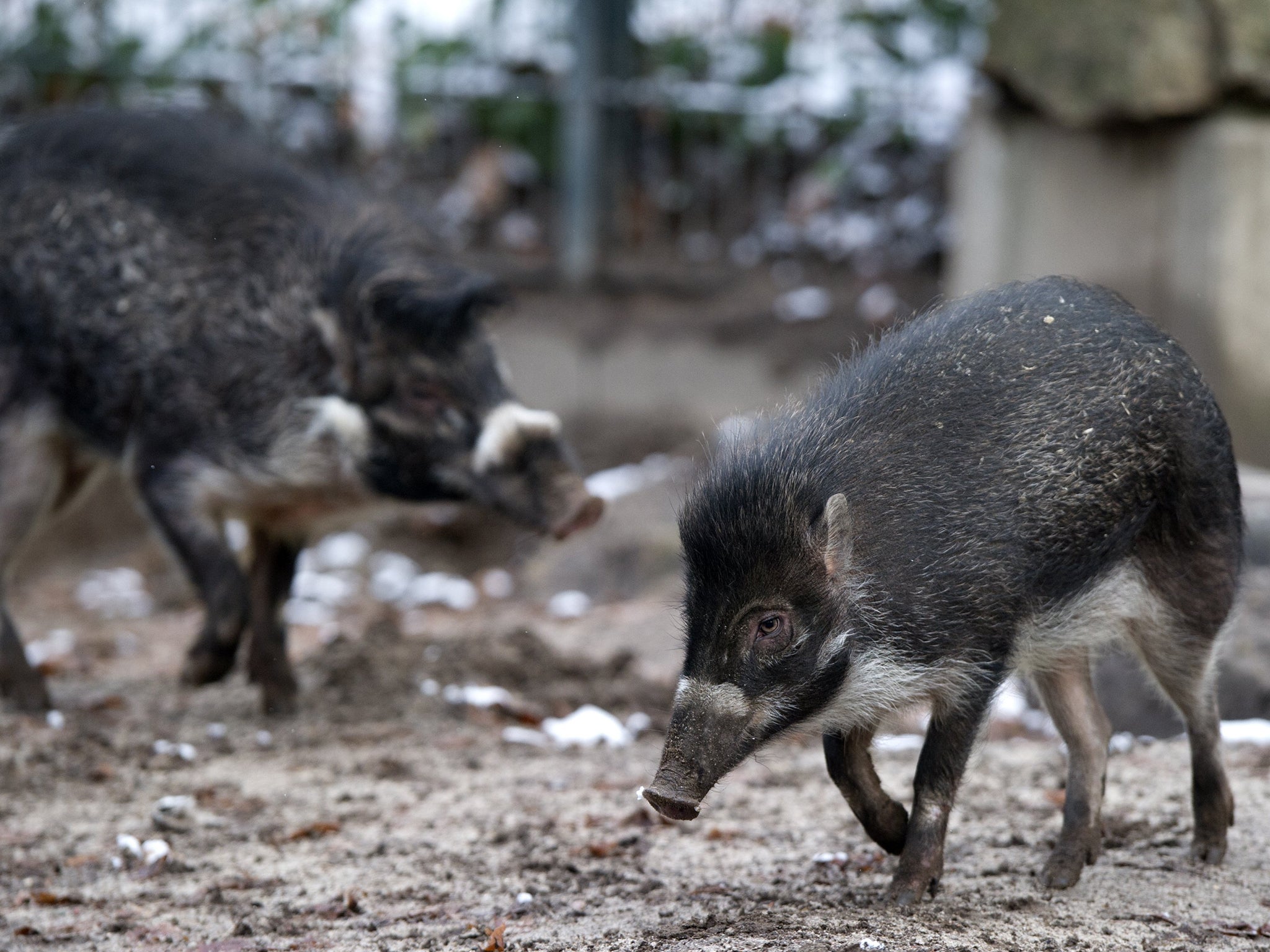Endangered species being eaten by animals at Bristol Zoo, according to whistleblower
The zoo worker claims an entire litter of critically endangered Visayan warty pigs were eaten by their father the day they were born

Your support helps us to tell the story
From reproductive rights to climate change to Big Tech, The Independent is on the ground when the story is developing. Whether it's investigating the financials of Elon Musk's pro-Trump PAC or producing our latest documentary, 'The A Word', which shines a light on the American women fighting for reproductive rights, we know how important it is to parse out the facts from the messaging.
At such a critical moment in US history, we need reporters on the ground. Your donation allows us to keep sending journalists to speak to both sides of the story.
The Independent is trusted by Americans across the entire political spectrum. And unlike many other quality news outlets, we choose not to lock Americans out of our reporting and analysis with paywalls. We believe quality journalism should be available to everyone, paid for by those who can afford it.
Your support makes all the difference.Far from being safeguarded for future generations, some of the world’s most endangered species have been eaten by animals at one of Britain’s best known zoos in recent weeks.
The astonishing revelations, from a whistleblower at Bristol Zoo, emerged today. They detail how an entire litter of critically endangered Visayan warty pigs was eaten by their father the day they were born. The mother, ‘Manilla’, had to be euthanised after being attacked by the male warty pig ‘Elvis’. The pair were brought to the zoo last year in a bid to breed the species, dubbed by the International Union for the Conservation of Nature as being at extremely high risk of extinction in the wild.
“On the day the female gave birth to piglets the male immediately ate them all, and then also attacked the mother by eating her rear end. She was so badly injured she had to be put down.” The zoo worker added: “This meant the loss of a family of rare warty pigs that could have been avoided by keeping the male separate.”
In a statement, a spokeswoman for the zoo claimed the incident was “completely unforeseeable” as staff did not realise the female was pregnant.
Last month a golden-headed lion tamarin, of which there are less than 1,000 left in the wild, managed to escape from its enclosure and fall “into the nearby pond, where it was trapped in a drainage valve and then eaten by American otters,” the whistleblower told the Bristol Post.
“On rare occasions, despite our best efforts, we are not able to prevent unfortunate and unforeseen situations from occurring,” admitted a zoo spokeswoman.
Meanwhile, a rainbow parakeet, a species native to Australia, remains missing after making a bid for freedom through a hole in its cage last week. Two others who escaped have been recaptured, and the enclosure repaired, according to the zoo.
The three incidents, which have taken place since December, were all “avoidable” claims the whistleblower, who would not be named.
It is not the first time that Bristol Zoo has been the subject of controversy. Last year a squirrel monkey managed to escape from the ‘monkey island’ enclosure by swimming across a moat before being recaptured. And in 2013 a zoo keeper was suspended after being accused of punching a South American fur seal in the head when staff were trying to weight the animal. An internal investigation cleared the individual of any wrongdoing.
Will Travers OBE, president, Born Free Foundation, said: “Wherever wild animals are kept in captivity, accidents can happen. However, tragedies can sometimes be prevented and the behaviour of the male Visayan warty pig in this case was hardly impossible to predict. Males of many species are widely known to be a threat to infants, especially in captivity. It would appear that better understanding of animals’ needs and behaviour may have prevented such a tragedy.”
All zoos are inspected under the Zoo Licensing Act, but studies published in 2012 and 2013 discovered that only a minority fully meet minimum standards of animal welfare, conservation, and education.
“The tragedy at Bristol Zoo is almost certainly not isolated. Predictable and preventable “accidents” regularly occur and the zoo industry, and the Government which oversees the standards, licensing and inspection of zoos, must do more to protect the captive animals for which they are responsible,” commented Mr Travers.
And Nicola O’Brien, director, Captive Animals’ Protection Society, said: “To have so many deaths and incidents occur so recently really does pose questions about the welfare of the animals kept at Bristol Zoo.” There needs to be “a full, immediate investigation by the local council into the animal care protocols at this zoo,” she added.
In a statement, a spokesman for the British and Irish Association of Zoos and Aquariums, of which Bristol Zoo is a member, said: “Staff caring for these animals have been understandably distressed after these sad and unusual events.” They added: “But we are confident that Bristol Zoo is doing everything possible to ensure that similar situations will not arise again in the future.”
Join our commenting forum
Join thought-provoking conversations, follow other Independent readers and see their replies
Comments